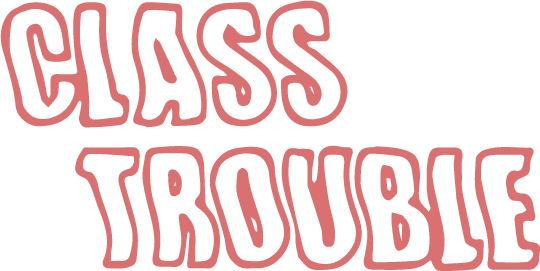February 28th, 2019
After years of working in the nonprofit industrial complex, I’ve seen white saviorism replicated repeatedly in the name of “helping the community.” Over and over again, white leadership teams have created and dictated work policies to BI&POC employees, tokenized and otherized BI&POC program participants, and funneled large grants towards white-led research projects that could have been answered easily by people who have been deeply impacted by hierarchies of oppression.
It’s mind-blowing when I hear nonprofit leadership/founders talk about how they really need to work on having community connections.
How can you work in a community without starting with the fundamental requirement of having relationships within that community?
It reminds me of white entitlement, of the phrase “nothing about us, without us.”
Because nonprofits were created with the intent of neutralizing and funneling resources away from BI&POC resistance movements, they are the embodiment of white saviorism: hierarchical charity rather than solidarity; volunteering as a hobby / a philanthropic act of donating leisure time; and the performance of self-sacrifice as a measure of commitment. This often leaves little to no room for an analysis of systemic oppression — or of the ways in which white leadership is still complicit with white supremacy.
For example, white-savior expectations of self-sacrifice and charity are (re-en)forced upon direct service workers who are mostly BI&POC, often on the lower rungs of the nonprofit hierarchy — ignoring how the circumstances or backgrounds of their BI&POC employees are frequently similar to, if not the same as, the "target populations'' that the organization “serves.” BI&POC workers are expected to donate free time past our paid hours and to push ourselves far beyond our capacity in order to demonstrate our “commitment to the cause.”
There is a longstanding myth that there is no money for nonprofit or social work, so BI&POC employees are also pressured to donate to charitable causes as if we aren't struggling too. We’re told that this is “just the way things are” and that we must focus on maximizing output and minimizing costs, never-mind sustainable workloads or a living-wage. Meanwhile, there are 501c3 executives who are awarded six-figure salaries when direct-service employees are the ones who work most closely with clients who are often in crisis mode or navigating deep trauma.
Unsurprisingly, the majority of nonprofits perpetuate an ableist capitalist work ethic of endless production, an obsession with metrics and measurable data to “prove” worth to investors and funders, often compromising meaningful work for rapid growth and scaling services year after year. In part, this is because under capitalism people have internalized the idea that social work, especially in a direct service capacity, is simply less valuable — and therefore not worth the investment.
This is unsustainable.
We should be able to work for and support the communities that we are from — but it shouldn't come at the cost of our own survival, nor should it be subject to the exploitation and gaze of white leadership. This isn’t to say that nonprofits led by BI&POC are automatically better — they might also overwork their staff, refuse to interrogate their ableism, maintain power imbalance through strict hierarchy, or work closely with carceral state agencies.
Although nonprofits are often the closest we can get to doing meaningful paid work while also supporting ourselves with a consistent income, they'll never be enough. It’s important to keep in mind that nonprofits work to reinforce the status quo and exist very much within the system, not outside of it. We need to keep building and supporting alternatives whenever we can.
Ultimately, no community relationships should need to be mediated by state-sanctioned 501c3 organizations. As anarchists, our major goals are community self-determination and autonomy. And we won't see liberation as long as we rely on venture capital to fund our work.
Andrea Alakran is a brown disabled femme anarchist. Follow them on Instagram @thecomradecloset

